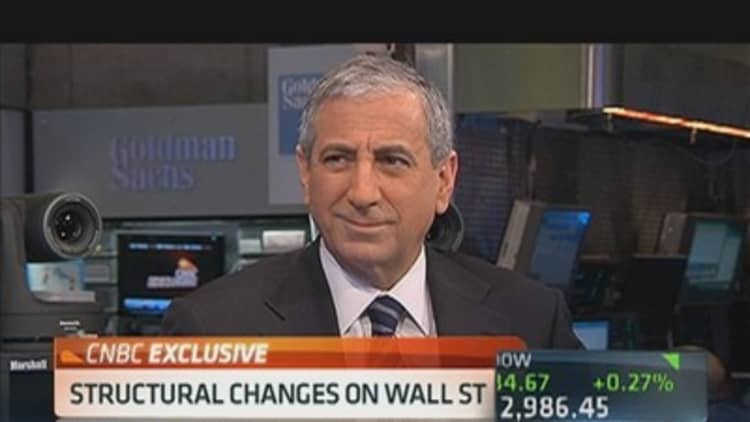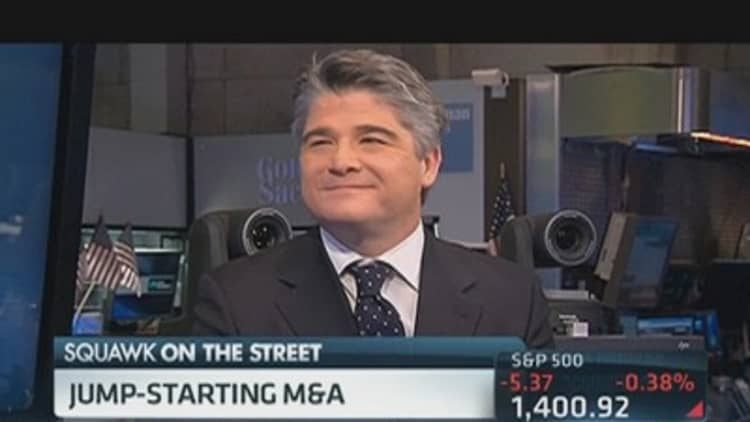Some of the world's biggest banks are getting smaller as they confront pricing pressures, a new regulatory environment and more onerous capital requirements that have left them with lower returns.
Citigroup, Bank of America and Switzerland's UBS have all announced major restructurings as they confront a more challenging environment for financial services globally.
Ken Moelis, founder of advisory firm Moelis & Co., said banks are facing the same problem that many big electronics retailers are facing with the growth of "showrooming." The proliferation of mobile devices and online services has made it easier for shoppers to check out a TV or tablet at the store and shop online for a cheaper price.

This trend is carrying over to financial services, Moelis said.
"Price transparency and availability of information is changing financial services in a fundamental way like it has every other industry and I do think you're going to continue to see firms struggle with that," he told CNBC's "Squawk on the Street".
Thirty years ago, with information harder to come by, there was a lot of margin when you have price information that is asymmetric to the rest of the world, Moelis noted. "What is a bigger commodity than an interest rate, currency swap, dollar bill and pricing is available on everybody's iPhone."
That has led to price compression on a range of financial products and services and has forced firms to rethink how large they should be and what businesses they should compete in.
(Read More: The World's Safest Banks 2012.)
"As you become a commodity, let's look at the other industries, they scaled up," the banker said. "Size matters. Volume matters. That's why you see a big move to large-scale providers of processing transactions."
The alternative is to focus on non-scale relationships where customers will still value judgment and experience – the strategy Moelis & Co. has employed.
Moelis believes that the move to bulk up means relationships often become less important. "All of the firms that disappeared in the early 2000s through mergers were on their way toward scale and when you're on your way toward scale, relationships tend to be undervalued," he said.

While big financial firms have struggled in 2012, Moelis does expect a better year for investment banking in 2013.
"What a good investment bank should do is solve financial problems for people," he said. "With things like the 'fiscal cliff' coming up and a radical change in tax rates and possible future growth rates, I just think there are going to be lots of decisions that need to be made."
That will mean not only an increase in M&A but other corporate advisory services.
(Read More: Boldest Predictions 2013.)
Those comments chime with statements from JPMorgan's head of North American M&A, James Woolerly. He expects a resurgence in merger activity following a compromise to avert the fiscal cliff of automatic tax increases and spending cuts slated to hit at the end of the year.
"We've got deals on the shelf that are waiting for this kind of activity," he said. "Those deals move into the market, sentiment shifts – as you know it can shift dramatically – and now all of a sudden I'm concerned that I'll get priced out of an attractive market," he told CNBC.


